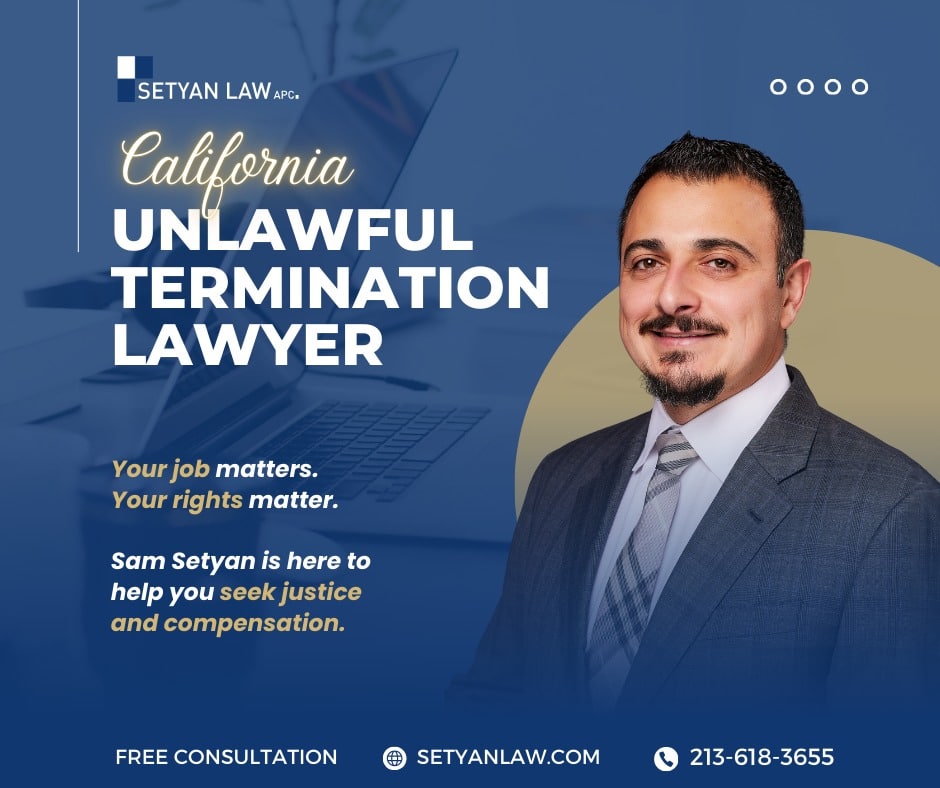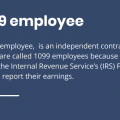Updated March 13, 2025
Can You Get Fired After Giving Notice of Resignation?
The decision to leave a job is often accompanied by a sense of anticipation and, sometimes, apprehension. When an employee takes the professional step of providing a two-week notice, they generally expect to work through this transition period. However, the reality can be quite different, especially in a state like California, where employment laws have unique nuances.
California’s at-will employment doctrine plays a significant role in shaping the dynamics of employment termination. This principle allows both employers and employees to end the employment relationship at any time, for any lawful reason, or for no reason at all. However, this doesn’t mean that all terminations are legally justified, even in the context of an employee’s resignation.
As we explore this topic, we’ll examine the legal framework surrounding termination after giving notice, the rights of employees in such situations, and the potential grounds for wrongful termination claims. We’ll also discuss the implications for unemployment benefits, the concept of retaliation, and the importance of understanding your employment contract.
The short answer: Yes, in California, an employer can legally terminate an employee even after they’ve given their two-week notice, as the state operates under an “at-will employment” doctrine, allowing termination for any reason. However, this could qualify as wrongful termination if the circumstances are retaliatory or illegal in nature.
Understanding At-Will Employment in California
At-will employment is a fundamental principle in California’s labor law that significantly impacts the employer-employee relationship. This doctrine forms the backdrop against which we must examine the issue of termination after giving notice.
In California, the presumption is that all employment relationships are at-will unless there’s a specific agreement stating otherwise. This means that both the employer and the employee have the right to end the employment relationship at any time, for any lawful reason, or for no reason at all. However, this principle is not absolute and comes with important exceptions and limitations.
The at-will doctrine provides flexibility in the workplace, allowing businesses to adapt to changing needs and employees to pursue new opportunities without being bound by long-term commitments. However, it also means that an employer can legally terminate an employee even after they’ve given notice, provided the termination doesn’t violate any laws or contractual agreements.
It’s crucial to understand that while at-will employment gives employers broad discretion in termination decisions, it doesn’t allow for terminations that violate public policy, discriminate against protected classes, or retaliate against employees for exercising their legal rights. These exceptions to the at-will doctrine provide important protections for employees.
For instance, if an employee gives notice and is then fired because they filed a complaint about unsafe working conditions, this could be considered retaliatory termination, which is illegal under California law. Similarly, if an employee is terminated after giving notice due to their race, gender, age, or other protected characteristics, this would constitute unlawful discrimination.
Moreover, the at-will doctrine can be modified by employment contracts, collective bargaining agreements, or company policies that specify termination procedures or guarantee employment for a certain period. In such cases, the employer may be bound by these agreements even if an employee has given notice.
Understanding the nuances of at-will employment is crucial for both employers and employees navigating the complexities of termination after giving notice. While it provides significant flexibility, it’s not a carte blanche for employers to terminate employees without consideration of legal and ethical implications.
Legal Implications of Termination After Giving Notice
When an employee is terminated after giving their two weeks’ notice, it raises several legal questions and potential implications. While California’s at-will employment doctrine generally allows for termination at any time, the circumstances surrounding the termination can determine whether it’s legally justified or potentially wrongful.
One of the primary considerations is whether the termination could be construed as retaliatory. If an employee gives notice and is then immediately fired, it could be viewed as a punitive action, especially if there’s no clear business reason for the immediate termination. This is particularly problematic if the employee recently engaged in protected activities, such as filing a complaint about workplace conditions or participating in an investigation.
Another crucial factor is the existence of any employment contracts or company policies that outline procedures for resignation and termination. If an employer has a policy of honoring notice periods or if there’s a contractual agreement specifying how terminations should be handled, deviating from these could potentially breach the contract.
Discrimination is another critical area of concern. If an employee can demonstrate that they were terminated after giving notice due to their membership in a protected class (such as race, gender, age, or disability), this could form the basis of a discrimination claim. It’s important to note that the timing of the termination in relation to the notice given could be seen as suspicious and may require the employer to provide a clear, non-discriminatory reason for the termination.
From a practical standpoint, terminating an employee immediately after they give notice can have implications for unemployment benefits. In California, if an employer chooses to end the employment relationship before the notice period expires, this could be considered a termination rather than a voluntary resignation. As a result, the employee may be eligible for unemployment benefits, which they might not have received if they had worked through their notice period.
It’s also worth considering the impact on final pay and accrued benefits. California law requires that final wages be paid immediately upon involuntary termination. If an employer terminates an employee after they give notice, they must be prepared to provide all owed wages, including any accrued vacation pay, at the time of termination.
While employers generally have the right to terminate employment at will, doing so after an employee gives notice requires careful consideration of the legal and practical implications. Employers should ensure they have legitimate business reasons for such actions and that they’re not inadvertently opening themselves up to potential legal claims.
Employee Rights and Protections
When facing termination after giving notice, employees in California have several rights and protections under state and federal law. Understanding these can help employees navigate this challenging situation and determine if they have grounds for legal action.
First and foremost, employees have the right to be free from discrimination and retaliation. This means that even if an employer has the right to terminate at will, they cannot do so based on an employee’s protected characteristics or in retaliation for engaging in protected activities. Protected characteristics include race, color, national origin, religion, sex, age, disability, and genetic information, among others. Protected activities include filing a complaint about workplace conditions, participating in an investigation, or exercising other legal rights.
Employees also have the right to receive their final pay in accordance with California law. If an employee is terminated after giving notice, they must receive all wages due, including any accrued vacation pay, immediately at the time of termination. If the employer fails to provide timely final pay, they may be subject to waiting time penalties.
In terms of unemployment benefits, employees who are terminated after giving notice may be eligible to receive these benefits. While voluntary resignation typically disqualifies an employee from unemployment benefits, being terminated before the notice period ends could be considered involuntary termination, potentially making the employee eligible for benefits.
Employees also have the right to review their personnel files and payroll records. This can be particularly important if an employee suspects that their termination was unlawful and needs to gather evidence to support their case.
If an employee believes their termination was wrongful, they have the right to file a complaint with the appropriate government agency or pursue legal action. In California, this might involve filing a complaint with the Department of Fair Employment and Housing (DFEH) or the Division of Labor Standards Enforcement (DLSE), depending on the nature of the claim.
It’s important to note that these rights apply regardless of an employee’s immigration status. California law protects all workers, including undocumented workers, from unlawful employment practices.
Employees should also be aware of any rights they may have under their employment contract or company policies. Some employers have policies that guarantee a certain notice period or specify procedures for handling resignations and terminations. Violations of these policies could potentially be grounds for a breach of contract claim.
Understanding these rights and protections is crucial for employees navigating the complex situation of termination after giving notice. It empowers them to recognize potential violations and take appropriate action to protect their interests.
Employer Considerations and Best Practices
Employers faced with an employee’s resignation notice must navigate a complex landscape of legal and practical considerations. While the at-will employment doctrine provides flexibility, terminating an employee after they’ve given notice requires careful thought and strategic decision-making.
One of the primary considerations for employers is the potential legal risk associated with immediate termination after receiving a resignation notice. While it may be legally permissible under the at-will doctrine, such actions could be scrutinized for potential discrimination or retaliation. Employers should ensure they have legitimate business reasons for terminating an employee before their notice period ends and that these reasons are well-documented.
Employers should also consider the impact on company morale and reputation. Terminating employees immediately after they give notice could be perceived negatively by other staff members and potentially damage the company’s reputation in the job market. It may be seen as punitive or unprofessional, which could affect future recruitment efforts.
From a practical standpoint, employers need to weigh the costs and benefits of immediate termination versus allowing the employee to work through their notice period. While immediate termination might save on wages, it could lead to disruptions in workflow, loss of knowledge transfer, and potential eligibility for unemployment benefits that might not otherwise have been available.
Best practices for employers in these situations include:
Having clear, written policies regarding resignations and notice periods. These policies should be consistently applied to avoid allegations of discriminatory treatment.
Conducting a thorough review of the situation before making a decision. This includes considering the employee’s role, access to sensitive information, and the potential impact on ongoing projects.
If immediate termination is necessary, providing a clear, non-discriminatory reason for the decision. This reason should be documented and communicated to the employee.
Ensuring compliance with all final pay requirements, including immediate payment of all wages due if the employee is terminated before the end of their notice period.
Conducting an exit interview, if possible, to gather valuable feedback and ensure a smooth transition of responsibilities.
Maintaining professionalism throughout the process, regardless of the circumstances of the employee’s departure.
Consulting with legal counsel before taking action, especially in situations that could potentially lead to legal claims.
By carefully considering these factors and following best practices, employers can navigate the challenges of employee resignations while minimizing legal risks and maintaining a positive work environment.
The Role of Employment Contracts and Company Policies
Employment contracts and company policies play a crucial role in shaping the rights and obligations of both employers and employees when it comes to termination after giving notice. These documents can significantly impact the legal landscape of such situations, potentially modifying the default at-will employment relationship.
Many employment contracts contain specific provisions regarding termination procedures, notice periods, and severance pay. These contractual terms can create binding obligations that supersede the general at-will employment doctrine. For instance, if an employment contract stipulates that an employee must be allowed to work through their notice period unless terminated for cause, an employer who terminates the employee immediately without cause could be in breach of contract.
Similarly, company policies outlined in employee handbooks or other official documents can create implied contractual obligations. If a company has a consistent policy of allowing employees to work through their notice periods, deviating from this policy without a legitimate business reason could potentially be seen as a breach of an implied contract.
Some employment contracts and policies may include provisions for "garden leave," where an employee is asked to stay away from work during their notice period while still receiving pay and benefits. This can be a useful tool for employers who want to protect sensitive information or maintain client relationships, while still honoring the notice period.
It’s important to note that employment contracts may also contain clauses that impact an employee’s rights after termination. For example, non-compete or non-solicitation clauses may restrict an employee’s ability to work for competitors or contact former clients for a certain period after leaving the company. These clauses can still be enforceable even if the employee is terminated after giving notice, although their enforceability can be affected by the circumstances of the termination.
For employers, having clear, well-drafted employment contracts and policies can provide important protections and clarify expectations around resignations and terminations. These documents should clearly outline procedures for giving notice, any requirements for working during the notice period, and the circumstances under which immediate termination might occur.
For employees, understanding the terms of their employment contract and company policies is crucial when considering resignation. These documents may provide important rights and protections beyond those offered by state and federal law.
Both employers and employees should be aware that even if an employment contract or policy allows for immediate termination after notice is given, this doesn’t override legal protections against discrimination, retaliation, or other unlawful employment practices.
In cases where termination after giving notice leads to legal disputes, employment contracts and company policies often play a central role in determining the rights and obligations of each party. Courts will look to these documents to understand the agreed-upon terms of employment and assess whether either party has breached these agreements.
Unemployment Benefits and Termination After Notice
The question of unemployment benefits often arises when an employee is terminated after giving notice. In California, eligibility for unemployment benefits typically depends on whether the separation from employment is considered voluntary or involuntary. The unique circumstances of being terminated after giving notice can complicate this determination.
Generally, when an employee voluntarily resigns and works through their notice period, they are not eligible for unemployment benefits. This is because unemployment insurance is designed to provide temporary financial support to workers who lose their jobs through no fault of their own.
However, when an employer chooses to terminate an employee immediately after they give notice, the situation changes. From a legal standpoint, this could be considered an involuntary termination, potentially making the employee eligible for unemployment benefits.
The California Employment Development Department (EDD), which administers unemployment benefits, considers several factors when determining eligibility in these cases:
The reason for the termination: If the employer had a legitimate business reason for the immediate termination (such as protecting sensitive information), this might affect the employee’s eligibility for benefits.
The timing of the termination: If the termination occurs immediately or shortly after the notice is given, it’s more likely to be viewed as involuntary.
The employer’s usual practices: If the employer typically allows employees to work through their notice periods, deviating from this practice could support the employee’s claim for benefits.
The employee’s actions: If the employee engaged in misconduct or violated company policies after giving notice, this could potentially disqualify them from receiving benefits.
It’s important to note that even if an employee is initially denied unemployment benefits, they have the right to appeal this decision. The appeals process allows for a more detailed examination of the circumstances surrounding the termination.
For employers, it’s crucial to understand that terminating an employee immediately after they give notice could result in unemployment benefit claims that might not have occurred if the employee had worked through their notice period. This can potentially impact the employer’s unemployment insurance rates.
Employees considering giving notice should be aware that if they’re terminated immediately, they may be eligible for unemployment benefits. They should be prepared to explain the circumstances of their separation from employment when applying for benefits.
Both employers and employees should keep detailed records of all communications and actions related to the notice and termination. This documentation can be crucial in determining eligibility for unemployment benefits and in addressing any disputes that may arise.
Retaliation and Wrongful Termination Claims
When an employee is terminated after giving notice, there’s always the potential for claims of retaliation or wrongful termination. These legal concepts play a significant role in shaping the boundaries of permissible employer conduct, even within the context of at-will employment.
Retaliation occurs when an employer takes adverse action against an employee for engaging in protected activities. Protected activities can include:
- Filing a complaint about workplace discrimination or harassment
- Participating in an investigation of alleged wrongdoing
- Refusing to engage in illegal activities at work
- Exercising rights under labor laws, such as taking family medical leave
If an employee gives notice shortly after engaging in a protected activity and is then immediately terminated, this could potentially be viewed as retaliatory. The proximity in time between the protected activity and the termination often serves as circumstantial evidence of retaliation.
Wrongful termination, on the other hand, occurs when an employee is fired for reasons that violate law or public policy. This can include termination based on:
- Discrimination against a protected characteristic (race, gender, age, disability, etc.)
- Retaliation for engaging in protected activities
- Violation of an employment contract
- Termination in violation of public policy (e.g., firing an employee for refusing to commit an illegal act)
In the context of termination after giving notice, a wrongful termination claim might arise if the employee can demonstrate that the real reason for their immediate termination was discriminatory or retaliatory, rather than a legitimate business reason.
It’s important to note that the mere fact of being terminated after giving notice does not automatically constitute wrongful termination or retaliation. The employee must be able to show that the termination was motivated by an unlawful reason.
For employers, the key to avoiding these claims is to ensure that any decision to terminate an employee after they’ve given notice is based on legitimate business reasons and is not influenced by any protected characteristics or activities. Employers should document their reasons for the termination decision and ensure that these reasons are consistently applied across similar situations.
Employees who believe they’ve been wrongfully terminated or retaliated against after giving notice have several options:
- Filing a complaint with the appropriate government agency, such as the California Department of Fair Employment and Housing (DFEH) or the federal Equal Employment Opportunity Commission (EEOC)
- Pursuing a civil lawsuit for wrongful termination
- Seeking resolution through alternative dispute resolution methods like mediation or arbitration, if provided for in their employment agreement
It’s crucial for both employers and employees to understand that claims of retaliation or wrongful termination can arise even in situations where the employee has already decided to leave the company. The act of giving notice does not negate an employee’s rights to be free from discriminatory or retaliatory treatment.
Notice Periods and Their Legal Significance
Notice periods play a crucial role in the employment relationship, serving as a transitional phase between an employee’s decision to leave and their actual departure. While not legally mandated in California, notice periods are a common professional courtesy that can have significant legal implications.
In California, as in most at-will employment states, there is no legal requirement for employees to provide a specific notice period before resigning. Similarly, employers are not legally obligated to provide notice before terminating an employee, except in certain mass layoff situations covered by the WARN Act.
However, many employment contracts and company policies do specify notice periods, typically two weeks. When these provisions exist, they can create legally binding obligations for both parties. For example:
If an employee fails to provide the agreed-upon notice, they might be in breach of their employment contract, which could potentially impact their final pay or benefits.
If an employer terminates an employee immediately after they give the required notice, this could potentially be seen as a breach of the implied covenant of good faith and fair dealing, especially if the employer has a consistent practice of honoring notice periods.
The legal significance of notice periods extends beyond contractual obligations:
Unemployment Benefits: As discussed earlier, termination before the end of a notice period can impact an employee’s eligibility for unemployment benefits.
Final Pay: In California, if an employer chooses to terminate an employee immediately after they give notice, they must provide all final wages, including accrued vacation pay, at the time of termination.
Continuation of Benefits: The timing of termination can affect when an employee’s benefits, such as health insurance, cease.
Non-Compete and Non-Solicitation Agreements: The enforceability and start date of these agreements can be impacted by whether an employee works through their notice period or is terminated immediately.
From a legal perspective, how an employer handles an employee’s notice period can also impact potential claims of wrongful termination or retaliation. If an employer has a consistent practice of allowing employees to work through their notice periods, deviating from this practice without a clear, legitimate reason could be viewed suspiciously in legal proceedings.
For employees, providing proper notice can help maintain professional relationships and secure positive references, which can have long-term career implications. It can also provide protection against claims of abandonment of duties or breach of contract.
For employers, honoring notice periods can facilitate smooth transitions, allow for knowledge transfer, and maintain positive relationships with departing employees. It can also help avoid potential legal issues related to immediate termination.
However, there are situations where immediate termination after notice might be justified, such as:
- Protecting sensitive information or client relationships
- Addressing disruptive behavior by the departing employee
- Complying with industry regulations that require immediate separation
In these cases, employers should ensure they have clear, documented reasons for the immediate termination and that these reasons are consistently applied across similar situations.
Practical Considerations for Employees
When contemplating giving notice, employees should consider several practical aspects to protect their interests and navigate potential challenges:
Review Your Employment Contract: Before giving notice, carefully review your employment contract or offer letter. Look for any clauses related to resignation procedures, notice periods, or post-employment obligations like non-compete agreements.
Understand Company Policies: Familiarize yourself with your employer’s policies regarding resignations. These are often found in employee handbooks or policy manuals.
Prepare for Immediate Termination: While it’s not the norm, be prepared for the possibility that your employer might choose to terminate your employment immediately upon receiving your notice. Have a financial cushion in place and be ready to start your job search immediately if necessary.
Secure Personal Items and Information: Before giving notice, ensure you have copies of any personal documents or information stored on company devices. However, be cautious not to take any proprietary company information, as this could lead to legal issues.
Document Everything: Keep written records of all communications related to your resignation, including your notice letter, any responses from your employer, and notes from any discussions about your departure.
Be Professional: Maintain a professional demeanor throughout the notice period, even if you’re terminated immediately. This can help preserve relationships and secure positive references for future opportunities.
Know Your Rights: Understand your rights regarding final pay, continuation of benefits, and potential eligibility for unemployment benefits if you’re terminated before your notice period ends.
Consider the Timing: If possible, time your notice to align with the completion of major projects or natural break points in your work. This can help maintain positive relationships and potentially reduce the likelihood of immediate termination.
Be Prepared to Transition: Even if you’re planning to work through your notice period, be prepared to transition your responsibilities quickly in case of immediate termination.
Seek Legal Advice if Necessary: If you believe you’ve been wrongfully terminated after giving notice or if you have concerns about how your departure is being handled, consider consulting with an employment lawyer.
Understand the Impact on Benefits: Be aware of how your resignation or potential immediate termination might affect your health insurance, retirement plans, or other benefits.
Plan Your References: Identify colleagues or supervisors who can provide positive references, and if possible, secure these before giving notice.
Review Non-Compete and Confidentiality Agreements: Understand any ongoing obligations you may have after leaving the company, particularly if you’re moving to a competitor.
Be Cautious with Social Media: Avoid posting about your job search or new position on social media until after you’ve given notice and ideally after you’ve left your current position.
Prepare for an Exit Interview: If your company conducts exit interviews, prepare to provide constructive feedback while maintaining professionalism.
By considering these practical aspects, employees can better protect their interests and navigate the potentially complex process of giving notice and transitioning out of their current role.
Legal Recourse and Seeking Professional Advice
When faced with termination after giving notice, employees may find themselves in a complex legal situation that requires professional guidance. Understanding the available legal recourse and knowing when to seek professional advice is crucial for protecting one’s rights and interests.
Legal recourse for employees who believe they’ve been wrongfully terminated after giving notice can take several forms:
Filing a Complaint with Government Agencies: Employees can file complaints with agencies such as the California Department of Fair Employment and Housing (DFEH) or the federal Equal Employment Opportunity Commission (EEOC). These agencies investigate claims of discrimination, retaliation, and other unlawful employment practices.
Civil Lawsuits: Employees may have grounds to file a civil lawsuit for wrongful termination, breach of contract, or other employment-related claims. These lawsuits can seek various forms of compensation, including lost wages, emotional distress damages, and in some cases, punitive damages.
Alternative Dispute Resolution: Some employment contracts include provisions for arbitration or mediation to resolve disputes. These methods can provide a faster and potentially less adversarial way to address employment issues.
Unemployment Benefits Appeals: If an employee is denied unemployment benefits after being terminated following their notice, they have the right to appeal this decision.
When considering legal action, it’s crucial to be aware of statutes of limitations. In California, the time limit for filing most employment-related claims is relatively short, often just one to three years from the date of the alleged violation.
Seeking professional advice is often advisable in these situations. An experienced employment lawyer can provide valuable guidance on:
Evaluating the Strength of Your Case: A lawyer can assess the facts of your situation and determine whether you have a viable legal claim.
Understanding Your Rights: Employment law is complex and constantly evolving. A lawyer can explain your rights under current state and federal laws.
Navigating the Legal Process: If you decide to pursue legal action, a lawyer can guide you through the process, from filing initial complaints to representing you in court if necessary.
Negotiating Settlements: Many employment disputes are resolved through settlements. A lawyer can negotiate on your behalf to secure the best possible outcome.
Protecting Your Interests: A lawyer can help ensure that you don’t inadvertently waive any rights or make statements that could harm your case.
Reviewing Severance Agreements: If you’re offered a severance package, a lawyer can review the agreement to ensure it’s fair and doesn’t contain unfavorable terms.
When seeking legal advice, consider the following:
Look for attorneys who specialize in employment law and have experience with cases similar to yours.
Many employment lawyers offer free initial consultations. Use this opportunity to assess whether the lawyer is a good fit for your case.
Understand the fee structure before engaging a lawyer. Some may work on a contingency basis, while others charge hourly rates.
Provide your lawyer with all relevant documents and information, including your employment contract, correspondence related to your notice and termination, and any evidence of potential discrimination or retaliation.
Be honest and thorough in your communications with your lawyer. Full disclosure allows them to provide the best possible advice and representation.
Remember that while legal action can be a powerful tool for addressing wrongful termination, it’s not always the best solution for every situation. A skilled employment lawyer can help you weigh the potential benefits and risks of pursuing legal action and guide you towards the most appropriate course of action for your specific circumstances.
Conclusion
Navigating the complexities of termination after giving notice requires a thorough understanding of employment law, careful consideration of individual circumstances, and often, professional guidance. While California’s at-will employment doctrine provides significant flexibility to employers, it does not negate the protections afforded to employees against discrimination, retaliation, and other unlawful employment practices.
For employees, the key takeaways are:
- Understand your rights and the terms of your employment contract before giving notice.
- Be prepared for the possibility of immediate termination and its potential implications.
- Document all communications and actions related to your notice and termination.
- Know that you may be eligible for unemployment benefits if terminated before your notice period ends.
- Seek legal advice if you believe your termination was unlawful or if you’re unsure about your rights.
For employers, the main considerations are:
- Ensure that decisions to terminate employees after they give notice are based on legitimate business reasons and are consistently applied.
- Be aware of the potential legal and practical implications of immediate termination, including possible unemployment benefit claims and impacts on company morale.
- Have clear, written policies regarding resignations and notice periods.
- Consult with legal counsel when dealing with complex termination situations.
Both employers and employees should approach the notice and termination process with professionalism and respect for legal obligations. By doing so, they can minimize legal risks, maintain positive relationships, and facilitate smooth transitions.
Remember, while this article provides a comprehensive overview of the legal landscape surrounding termination after giving notice in California, it’s not a substitute for personalized legal advice. Employment law is complex and constantly evolving, and individual cases can have unique factors that require specific legal guidance.
In any situation involving termination after giving notice, it’s advisable to consult with an experienced employment law attorney who can provide tailored advice based on the specific circumstances of the case. This can help ensure that rights are protected, obligations are met, and the best possible outcome is achieved for all parties involved.
Remember, you are not alone in this journey. Many employees have successfully challenged unfair dismissals and secured justice. By arming yourself with knowledge, seeking appropriate legal guidance, and taking strategic action, you can stand up for your rights and work towards a positive resolution.
Wrongful termination cases are often complex, and outcomes can vary widely based on individual circumstances. However, by understanding your rights and the legal landscape, you’re better equipped to make informed decisions and take appropriate action. Whether your next step is consulting with an attorney, filing a complaint, or negotiating with your former employer, approach it with confidence, knowing that you’re taking proactive steps to protect your rights and your future.
Your career is more than just a job—it’s a significant part of your life and identity. By standing up against wrongful termination, you’re not only fighting for your own rights but also contributing to a fairer workplace for all employees. Stay resilient, stay informed, and remember that with the right approach and support, you can overcome this challenge and move forward towards a brighter professional future.
If you’re employed by a California employer, contact an expert Wrongful Termination Attorney first, for expert assistance regarding your case. Call today for a free and confidential consultation.







